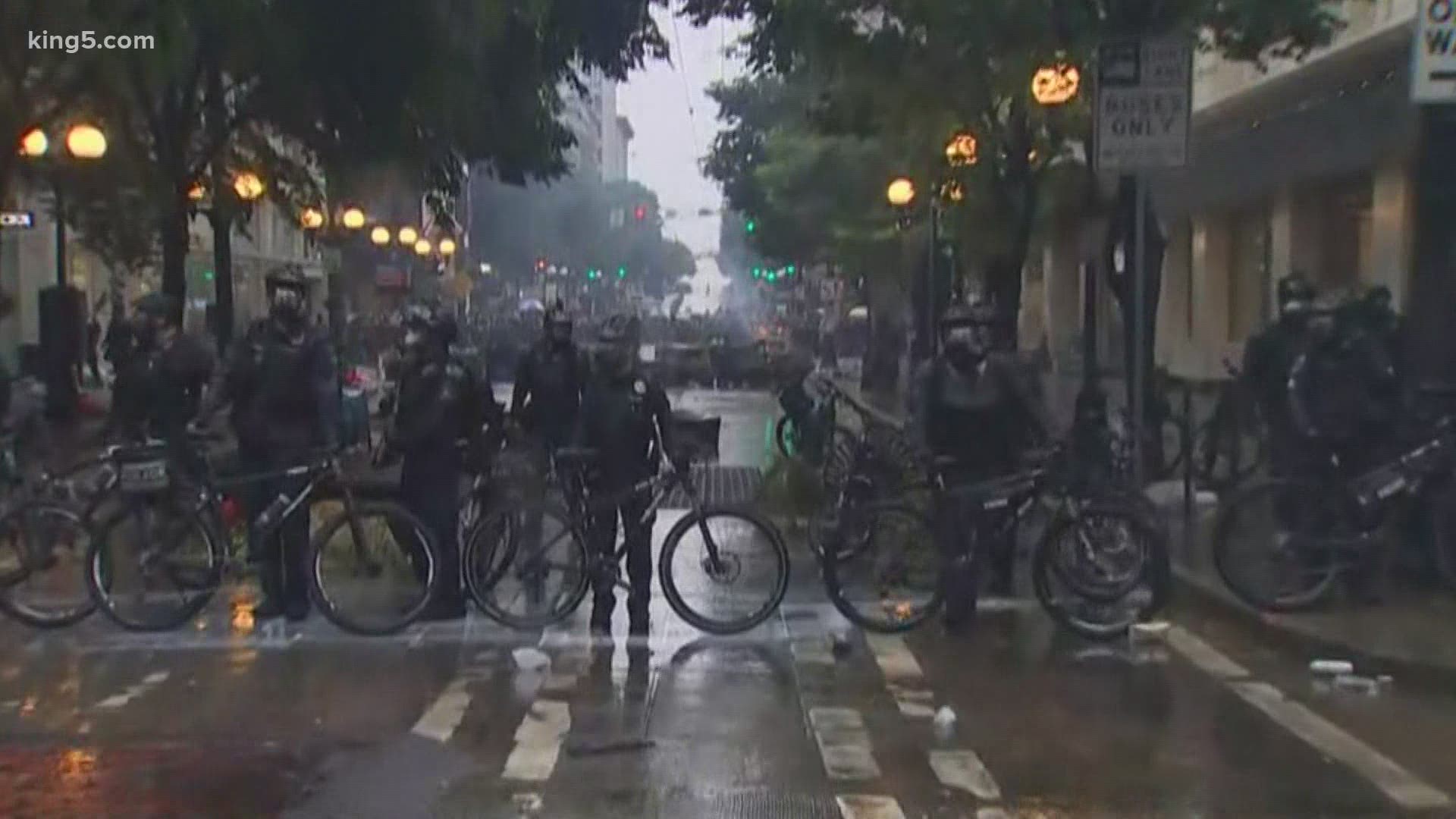SEATTLE — The new monitor overseeing the Seattle Police Department's federal consent decree is filing a plan for the year.
The plan sets in place goals for the year for a department that faced what Police Chief Adrian Diaz calls "unimagined challenges" this summer.
The department will also file annual revisions to its policies that will reflect the lessons learned during protests over the summer, according to Diaz. Since the protests began, the Office of Police Accountability has received more than 19,000 complaints related to demonstrations. Of those, 140 have resulted in investigations with 50 investigations complete.
Diaz has disciplined officers, including firing four of them.
"It's unfortunate," he said, referring to firing officers. Though those decisions aren't easy because those officers may have spent years on the job, he said behavior that leads to termination "really dishonors the badge."
In a letter outlining the department's plan moving forward, Diaz said the department is committed to improving community engagement.
As the department continues to work on reform, Diaz notes officers have "addressed a historic rise" in homicides and gun violence. In 2020, more than 1,000 guns were taken "off the street" for the fourth year in a row.
"This work is being done in the midst of a true staffing crisis, an historic mid-year budget cut and ever-pending additional cuts," Diaz wrote. "Make no mistake: without appropriate funding to ensure continued training and staffing, it is not just frontline patrol response that are threatened, but the core infrastructure established under the consent decree to support continued reform.
"The Consent Decree explicitly recognizes this point, requiring the City to provide SPD with the necessary support and resources to meet and sustain its obligations."
The Department of Justice began investigating SPD in 2011 after community leaders said police were using excessive force particularly on minorities.
Since 2012, the Seattle Police Department has been under federal oversight after being found to have used excessive force and policies that led to biased policing.
The Seattle Police Department and the Department of Justice reached an agreement on a list of reforms mostly around discipline, accountability, force and community oversight. A judge ruled they needed to implement and then sustain the reforms for a two-year period.
U.S. District Judge James L. Robart started that two-year clock in 2018.
In 2020, Robart said although SPD remains in compliance when it comes to use-of-force, SPD has work to do when it comes to accountability.
In May 2020, the city of Seattle and DOJ filed a joint motion to remove parts of the decree they were in compliance with — including use-of-force but not accountability or discipline.
Then nationwide protests — including Seattle — over the killing of George Floyd in Minneapolis took place. The department received thousands of complaints regarding use of force and the city announced it would withdraw the motion to remove parts of the decree.
In his letter, Diaz said reform isn't the end goal, "it is an ongoing process of critical, iterative review grounded in a commitment to continuous improvement and innovation."
"The purpose of the Consent Decree was not to have SPD meet a goal and stay there, but rather to cement into the department’s DNA this drive for continual reform," he wrote.

